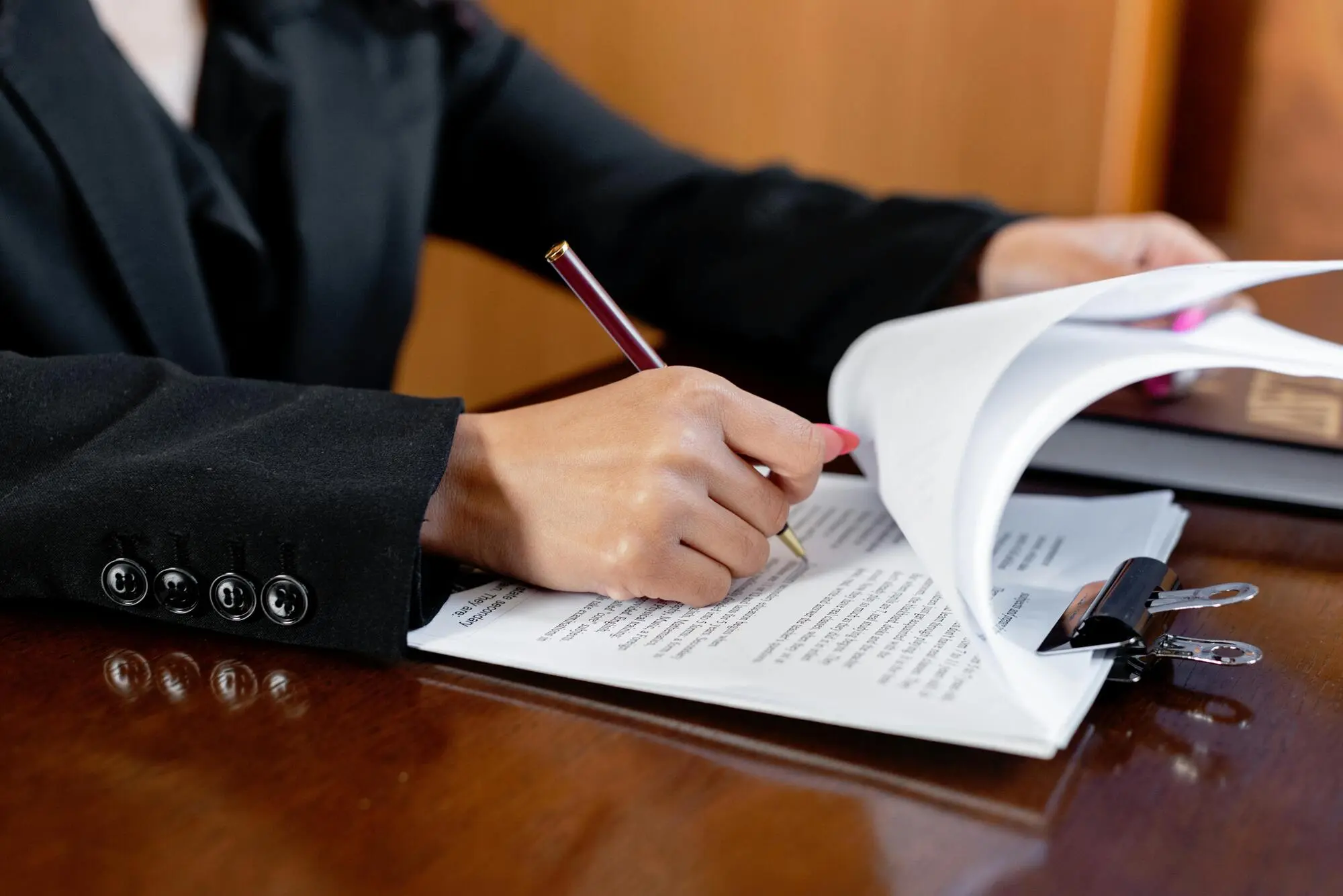Need Help Setting Up an Irrevocable Trust?
When it comes to asset protection, few vehicles are as effective and comprehensive as irrevocable trusts. In fact, when you work with Dominion to safeguard your assets and your wealth, we almost always set up our clients with an irrevocable trust. These instruments are airtight and legally impenetrable when drafted properly.
But how do you set up an irrevocable trust? Today, let’s take a look at this process step-by-step, though we’ll dive into the details even further when you contact one of our representatives.
What is an Irrevocable Trust?
In a nutshell, an irrevocable trust is an “unchangeable” trust vehicle that provides greater security for those who use one compared to standard or revocable trusts.
With a normal trust, if you ever want to change something about your trust vehicle, like the beneficiary list, trustee, etc., you can do so by making modifications to the trust documents. You can’t do that with an irrevocable trust.
Instead, you can only change an irrevocable trust under very limited circumstances, such as you and all the beneficiaries agreeing a change is necessary and petitioning the relevant court to modify the documents.
In most cases, however, irrevocable trusts are truly unchangeable, so a court or creditor can’t legally compel you to modify the vehicle and access your assets within.
That’s why we use offshore irrevocable trusts at Dominion for each of our clients. So long as you draft your irrevocable documents wisely, your assets will be safe from practically anything you can imagine.
Irrevocable trusts are the steel vaults buried in dozens of meters of concrete of the asset protection world – they're the best asset protection your money can buy.
Setting Up an Irrevocable Trust Step-by-Step
Of course, what constitutes a good irrevocable trust for one person may not necessarily constitute an excellent irrevocable trust for you. And let’s face it, an irrevocable trust designed to protect grandma’s cherished antique collection isn’t going to cut it for a tech mogul juggling a diverse array of assets.
That’s why we’re seeing more and more of these trusts include provisions for digital assets like cryptocurrencies and NFTs – a far cry from the traditional stocks and bonds.
And these trusts aren’t just short-term solutions anymore. Many are designed to last well over a century, evolving right alongside the families they serve. So, whether you’re a farmer passing down the family land or a crypto enthusiast with a digital fortune, your irrevocable trust needs to be as unique as you are.
To that end, the step-by-step process for setting up an irrevocable trust looks similar from person to person, but each time we set up a new offer trust for one of our clients, there are subtle differences.
Find an Attorney/Legal Team
First and foremost, you’ll need to find an attorney and legal team you can work with for a long time to come.
Whenever you set up an irrevocable trust, that vehicle will be used by you and your beneficiaries for quite a while. So it pays to partner with the ideal legal team that has the knowledge and insight you need to succeed.
That’s where Dominion comes in. We have all the infrastructure necessary to create and maintain highly defensible, offshore irrevocable trusts for you and your estate for several decades into the future.
We have lawyers, financial advisors, analysts, and even dedicated trustees that many of our other clients rely on to manage and administrate their trustees with maximum security.
Take your time finding the right legal team for your trust setup. You already have enough money to pay for premium assistance. Don't skimp on this and go for the budget-friendly option. As the saying goes, you get what you pay for!
Find the Right Trustee
Your next step should be identifying and appointing the ideal trustee for your irrevocable trust. If you are setting up an irrevocable trust for asset protection purposes, it’s vital that your trustee be a neutral third party you don’t have any personal connection to.
Why? If you have any personal connection to the trustee, an aggressive judge or very inspired creditor could claim that you have an outsized influence over the trustee, which can affect their decisions, access to assets, etc.
If leveraged properly, this could compromise the protection of your irrevocable trust, cutting through the layers of legal defense you erect around your assets.
If your trustee is a totally neutral third party that you barely know, a court or lawyer can’t claim that there’s something else going on or that you have greater control over the assets in your trust than you say.
Remember, the chief defensibility of an irrevocable trust is the fact that you give up ownership of the assets placed inside that trust. You don't control them anymore! Therefore, it doesn't matter if you are successfully sued or you owe money. You can't be forced to pay for those things with assets you don't own.
Can You Be the Trustee?
While it might legally be possible for you to be the trustee for your irrevocable trust, it’s never a good idea. Just like you shouldn’t know the trustee, you shouldn’t be the trustee of your irrevocable trust if you set it up for asset protection purposes.
If you are the trustee, you have control over the assets and can determine when they’re distributed, what happens to the assets, and more. Therefore, if a court ever wants you to use the assets to pay for a debt or to cover damages in a lawsuit, you won’t be able to legally tell the court that you can’t do it.
You’re the trustee. Of course you can do it!
It might sound risky to entrust the assets in your trust to someone you don't know, but it's actually the smartest thing you can do for long-term wealth preservation. Choose the right trustee from a reputable list, and you'll be able to sleep soundly, just as if you were in charge of the assets personally.
Determine Your Beneficiaries
At this stage, you need to determine any beneficiaries, which can include you, your spouse, kids, grandkids, or anyone else you may wish to benefit from the trust.
When you work with knowledgeable legal experts and financial advisors, they’ll give you recommendations regarding beneficiaries, timelines, distribution schedules, and everything else.
This is just another reason why you should opt to pay for premium advisors and experts. The higher quality information you receive, the better decisions you can make regarding your trust vehicle and its operation long after you take your hands off the steering wheel.
Draft the Paperwork
Once you’ve appointed the trustee and any beneficiaries, all that’s left is to draft the paperwork. Note that, just like other types of trusts, irrevocable trusts have to be drafted by licensed attorneys. The attorney for your trust has to be licensed in your trust’s jurisdiction or country.
Say you set up an irrevocable asset protection trust in Switzerland. You'll need an attorney licensed to practice there to draw up your paperwork properly.
It's also a good idea to have other lawyers and financial advisors look over the trust documents before anything is finalized. You never know when an exploit or loophole might be spotted.
Since an irrevocable trust is unchangeable, you need to catch those potential weaknesses sooner rather than later!
Finalize the Trust Vehicle
Now, you need to finalize your trust by signing on the dotted lines. Again, your lawyers will guide you through the process and ensure that everything is to your satisfaction before you finalize the trust.
This is an important step. Remember, your irrevocable trust is unchangeable once you sign the relevant documents! But if your legal team has done their job, you won’t have anything to worry about when your trust goes into effect.
Monitor and Maintain the Trust
All that’s left is to monitor your trust over time. When you work with Dominion, our trust administrators and trustees will send you regular progress reports on your trust and the assets within. While you won’t be able to change your trust, you can still see how our efforts yield the fruit you expect.
We strive to provide stellar service to our clients, and we’ve built our reputation by adhering to our clients’ strictest needs. As you monitor the trust, you can ensure that the trustee follows your directives and track when your distributions should arrive.
Your trust will require annual maintenance fees. But any fee you pay will be an overall small price to pay for peace of mind and financial security.
On top of that, depending on how you set up your irrevocable offshore asset protection trust, investments within the trust could generate enough income to pay for the maintenance fee and then some.
In that light, your trust could pay for itself, so long as you invest the assets in a smart and strategic way! If your trust is offshore, you could have access to a greater range of investment opportunities compared to a domestic trust.
Contact Dominion Today
Still have questions? That's completely normal, and you don't need to hesitate to ask them.
When you speak to one of Dominion’s representatives, we’ll walk you through the above steps and more. Indeed, we’ll begin everything with an initial consultation to find out your wealth preservation goals and requirements, then get to work identifying the ideal jurisdiction and trustee for your needs.
Every irrevocable trust we set up is unique to our clients, as we never use templated asset protection strategies. By working with Dominion, you’ll give your estate the best chance to stay solvent and valuable in perpetuity, even in the face of severe legal threats, creditors, and other hazards. Contact one of our representatives today to learn more.




































.jpeg)


























